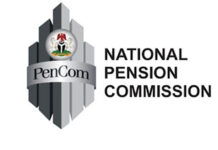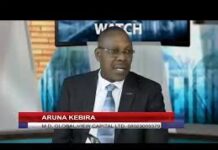The Petroleum Training Institute (PTI), at the weekend, said it had begun the training of artisanal crude oil refiners to prevent the further destruction of the environment in the Niger Delta.
The Ministry of Petroleum Resources which oversees the institute had in August this year inaugurated a technical committee to fashion ways of integrating artisanal oil refiners into mainstream crude refining.
Addressing journalists on the preparation for its 3rd Biennial International Conference on Hydrocarbon Science and Technology in Abuja, the Principal/Chief Executive of PTI, Dr. Henry Adimula, stated that although the existing platform needed to be expanded, it is now possible to admit interested persons for training.
“When you look at the country today and the lack of technology that is being used, especially by the artisanal refiners, one of the things we have done is to develop concepts and also to help to train the individuals so that whatever they do would not adversely affect the environment.
“We at the institute have built our own. Now, what is next is to scale it up to find ways to make it commercial. But as an institute, we have that already.
“We have a template, we have drawings, we have all the fabricated parts and everything so that it is easier to now bring people in, teach them on the various components of what they will actually encounter in the field.
“What we have today are people who know next to nothing about refining, they just go into the bush and begin to break pipelines and begin to boil or cook oil.
“We’re doing it differently by training them and by equipping them with the necessary skills that will make them be able to contribute meaningfully to the economy,” he stated.
At the conference, he stated that issues like energy security, the role of government policies and regulations, energy transition as well as decarbonisation will be discussed.
Themed: ‘The Future of the Oil and Gas Industry: Opportunities, Challenges and Development’, Adimula stated that during the upcoming programme, scheduled to begin on Monday, the PTI would showcase recent research outcomes from the institute.
The institute added that it was partnering with the NNPC Research, Technology, and Innovation (RTI) Centre to develop a cost-effective Compressed Natural Gas (CNG) programme for tricycles and small vehicles nationwide.
Director of Research and Development, PTI, Dr. Tina Isichei, while speaking, said that the collaboration with the NNPC unit will assist in placing less emphasis on the use of petrol to the use of cleaner energy like gas.
“The other aspect of cleaner energy is the issue of transportation, which is key in any country. And for us in Nigeria as a whole, what we’re still using is PMS. That’s what drives our tricycles, drives our cars, and all that.
“Right now, the PTI is partnering with NNPC-RTI to come up with CNG-powered tricycles, especially as the government is talking about the decade of gas and emphasis is now on gas.
“We know that gas is a cleaner energy source than crude. So discussions are on and the whole idea is to come up with one research that will reduce the amount of petrol that we consume. The other one is how to reduce the emissions that are going into the atmosphere,” she explained.
He added that all parties involved in the matter, including the Nigerian National Petroleum Company Limited (NNPC), the federal government, and others would be heard to enable it to proffer a solution for the revival of the project.
Williams said: “We’ve seen it all. We’re going back to the drawing board and we will call everyone involved. We have the assurance of the Senate President because we all want this country to work for everyone.
“We’re committed to making things work and we are assuring all stakeholders that justice will be done.”
The Senate committee’s efforts align with the vision of the President Tinubu administration towards maximising the nation’s petroleum resources and leveraging them for the overall growth and development of Nigeria.
























